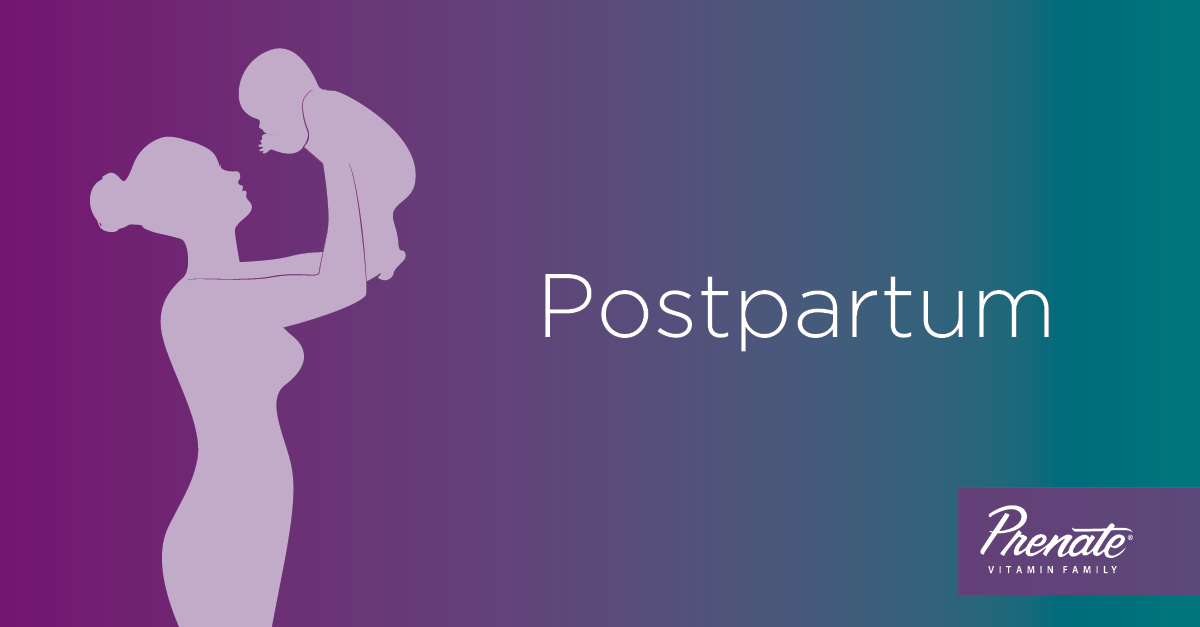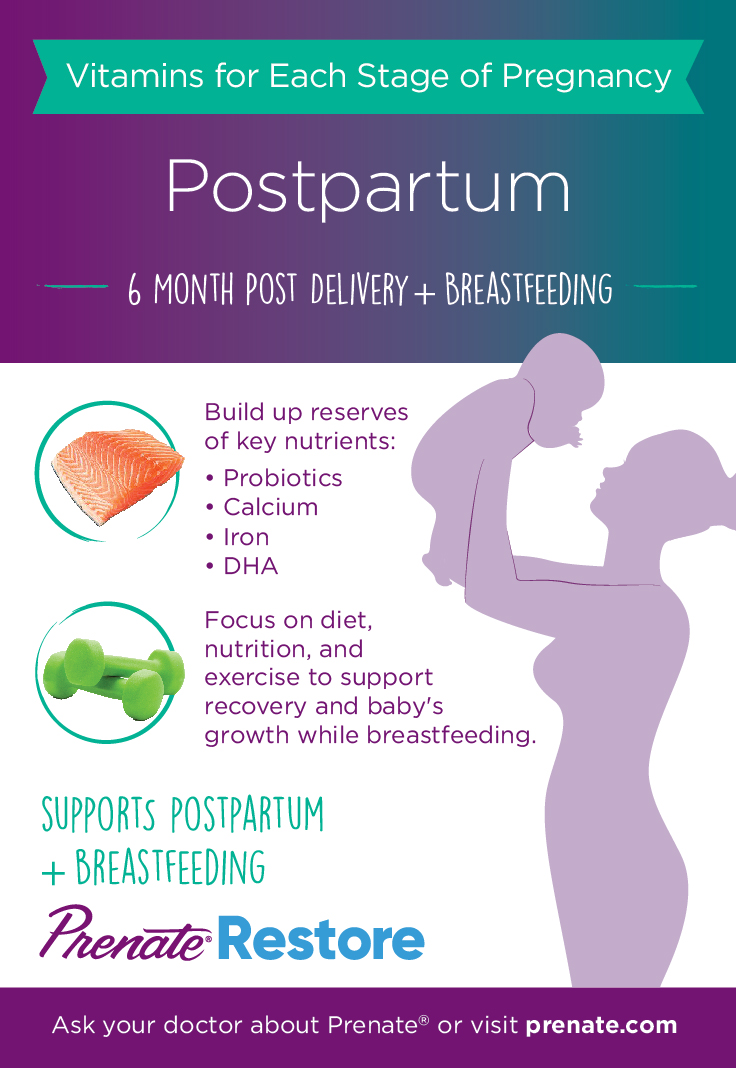Prenatal Vitamins for Each Stage of Pregnancy: Postpartum & Breastfeeding
September 27, 2017
Congratulations on your new arrival! You are probably experiencing overwhelming feelings of wonder and joy with the arrival of your newborn. This is a very special time in both of your lives. Like most mothers, you’ll probably spend hours bonding with your baby, especially in the weeks and months after delivery. You’ll also begin to establish a routine that works for everyone. But even as you dedicate yourself to caring for your baby, be sure to take time to care for your own health and wellness.
In the weeks following pregnancy, your body will begin to heal from delivery and adjust to life after pregnancy. If you had a cesarean section, it may take four to six weeks for you to feel like yourself again. As soon as your doctor allows, you should try to find ways to make exercise part of your routine.
Even though you are no longer pregnant, following a balanced diet post-pregnancy will have positive benefits for both you and your baby. Try to follow a diet with plenty of whole grains, dairy, veggies, fruit and lean protein. If you choose to breastfeed, following a balanced diet will have a positive effect on your baby’s health.
Moms who breastfeed need increased nutritional intake to restore their nutritional reserves and support infant growth.1,2 During this time, nutrients are preferentially partitioned to mammary glands at the expense of maternal reserves. If you are breastfeeding your baby, be sure to focus on obtaining essential nutrients that will support his or her development and your recovery from delivery.
Key Nutrients During Postpartum & Breastfeeding:
- Probiotics – Probiotics support gastrointestinal and immune health in both you and your baby. For babies, probiotics create an environment that supports their immune response to allergens.3 Probiotics also colonize the gut and keep bacteria in balance in babies, which can prevent diarrhea and protect them from pathogens.3-5 For moms, probiotics reduce intestinal gas and incidences of diarrhea.6.7 Moms also experience the benefit that probiotics provide in keeping good and bad bacteria in balance in their guts.
- Iron – Iron-deficiency anemia is a common condition that many women develop during pregnancy. In addition, your body lost blood during your baby’s delivery. Post- pregnancy, consume iron through diet and supplements to help restore your iron levels and start to build reserves.
- DHA – Women lose 50 percent of omega-3 stores during pregnancy. For moms, DHA reduces the risk of postpartum depression and improves sleep patterns.8-11 For babies, DHA improves cognitive and immune development, motor skills and inflammatory responses.12-15
- Calcium – Bone mass is lost during pregnancy and breastfeeding. It takes longer to build up levels of this mineral in the body. Once a woman is pregnant, her baby will draw calcium from her bones if her diet does not include enough calcium to meet her baby’s needs.16
Vitamins for Breastfeeding & Postpartum
While a balanced diet is preferred, some women may have trouble meeting their daily recommended intakes for certain vitamins and minerals. The Prenate® Vitamin Family offers a line of prenatal vitamins that are designed to carry moms and babies through preconception to pregnancy and into the weeks and months after delivery. One vitamin in our family, Prenate® Restore, is specifically formulated to fit the needs of postpartum and breastfeeding moms and their babies.
Prenate® Restore is our only vitamin that contains probiotics and other key nutrients needed during postpartum and breastfeeding. It is a once-a-day, lactose-free, and gluten-free softgel that supports expecting mothers during pregnancy, postpartum, and while breastfeeding. When taken by a breastfeeding mother, Prenate® Restore also can help promote her baby’s brain, immune system, gut development and optimal physical growth.17-19
The Prenate® Vitamin Family helps support expecting moms with robust doses of key nutrients. Talk to your doctor to see if a Prenate® prenatal vitamin may be right for you to help fill nutritional gaps.
You Are About To Leave This Website
By clicking continue, this link will take you to a website to which Alora Pharmaceuticals Policies & Terms of Use do not apply. Alora and its subsidiaries do not control the content or accuracy of third-party websites and assume no responsibility for their use.













